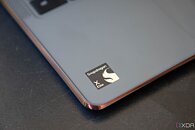- Joined
- Aug 19, 2017
- Messages
- 2,949 (1.05/day)
The latest market data from Canalys reveals a complex landscape for AI-capable PCs, with Qualcomm's Snapdragon X platform showing modest growth in the age of AI PC. Despite sequential growth of 180% in Q3 2024, Snapdragon X-powered devices represent less than 1.5% of the Windows market, according to research. Qualcomm managed to sell around 720,000 Snapdragon X devices, which accounts for only 0.8% of all PCs sold in Q3 2024. Microsoft leads the adoption of the Snapdragon X, having integrated the platform across much of its Surface lineup. The broader AI-capable PC market, however, tells a different story. Shipments reached 13.3 million units in Q3 2024, claiming 20% of total PC shipments. Windows devices dominated this category for the first time, securing a 53% market share, driven by the Windows 11 refresh cycle and advances in processor technology.
Canalys also noted some significant challenges ahead. A recent survey indicates hesitancy among channel partners, with 31% planning to avoid Microsoft's Copilot+ PCs in 2025 and 34% expecting these devices to constitute less than 10% of their sales. These premium offerings, which require a minimum of 40 NPU TOPS, are constantly being evaluated over their value proposition. Major manufacturers are pursuing diverse strategies to differentiate themselves. HP focuses on ISV partnerships to enhance AI capabilities, while Lenovo develops proprietary tools like Creator Zone and Lenovo AI Now. Dell and Lenovo are integrating on-device AI within their broader service ecosystems. With Windows 10's end-of-support approaching, manufacturers face pressure to drive upgrades among users with aging devices. The industry's sequential growth of 49% in AI-capable PCs suggests increasing market appetite, though customer adoption of premium AI features remains selective.

View at TechPowerUp Main Site | Source
Canalys also noted some significant challenges ahead. A recent survey indicates hesitancy among channel partners, with 31% planning to avoid Microsoft's Copilot+ PCs in 2025 and 34% expecting these devices to constitute less than 10% of their sales. These premium offerings, which require a minimum of 40 NPU TOPS, are constantly being evaluated over their value proposition. Major manufacturers are pursuing diverse strategies to differentiate themselves. HP focuses on ISV partnerships to enhance AI capabilities, while Lenovo develops proprietary tools like Creator Zone and Lenovo AI Now. Dell and Lenovo are integrating on-device AI within their broader service ecosystems. With Windows 10's end-of-support approaching, manufacturers face pressure to drive upgrades among users with aging devices. The industry's sequential growth of 49% in AI-capable PCs suggests increasing market appetite, though customer adoption of premium AI features remains selective.

View at TechPowerUp Main Site | Source






